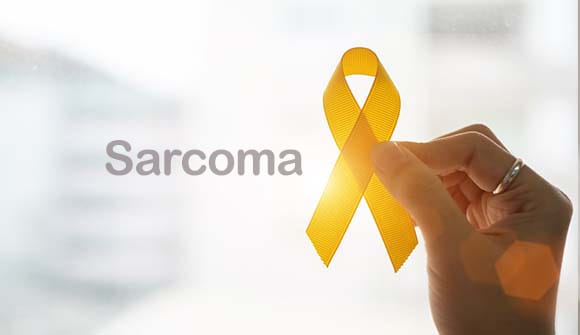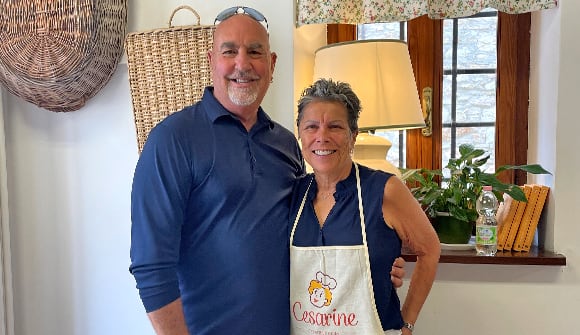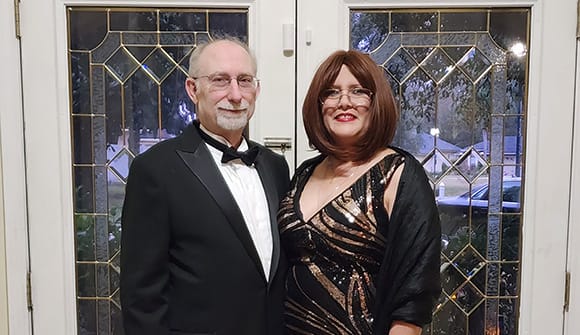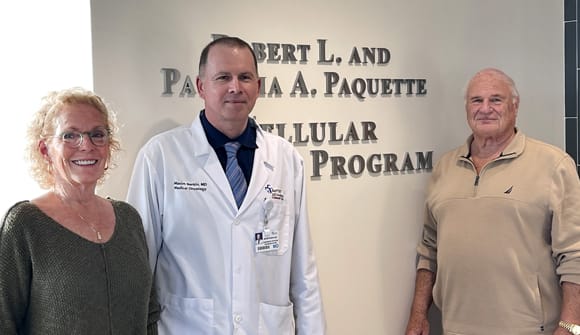The ‘forgotten cancer’
Red flags that signal sarcoma.
Article Date:

When you hear the word cancer, you probably think of the more common types you can get screened for, like breast, colon or skin cancer. Sarcoma, on the other hand, is so rare it’s called ‘the forgotten cancer’; it accounts for just 1% of all cancers in adults.
Sarcoma causes tumors to grow in the connective tissues like joints, bones, muscles, fat, cartilage or nerves. There are more than 50 subtypes of sarcoma, and the type a person has depends on where it forms in the body. For example, myosarcoma happens in muscle, while osteosarcoma occurs in bone. While these sorts of tumors are uncommon, it’s important to know if you’re at an increased risk of developing one, and when to call your doctor.
How is sarcoma cancer detected?
Sarcoma is sometimes found by accident or because of subtle changes in the body. Niraj Gusani, MD, chief of Surgical Oncology at Baptist MD Anderson Cancer Center, specializes in treating sarcomas in the abdomen. His patients usually learn they have a tumor after having imaging done for a different issue, like a gallbladder condition or kidney stones.
“Sometimes they’re asymptomatic, or sometimes the person will have loss of appetite, subtle weight loss or general malaise (fatigue),” he said. “Some people will first notice something is amiss when there’s a small change in their body, like pain when they lean back in a chair because the mass is pressing on other structures.”
Sarcomas that form in the arms or legs, however, are usually more visible. They generally appear as painless, growing masses that are firm to the touch and don’t move around under the skin.
Radiation can be a risk factor
Making lifestyle changes can majorly reduce your risk of developing some cancers, like avoiding smoking to prevent lung cancer. Unfortunately, what puts you at risk for sarcoma is often out of your control.
“Years after a person has radiation to a certain area – like during treatment for breast cancer – he or she can develop a sarcoma in that area,” Dr. Gusani said. “There are some genetic risk factors for sarcomas that run in families or are linked to certain genetic syndromes, but these are very rare.”
So, you can’t necessarily lower your risk, but you can be mindful of your body and pay close attention to any significant changes.
“If something doesn’t feel right, bring it to your physician’s attention. It may not be a sarcoma, but you may find something significant,” said Dr. Gusani.
Treatment options for sarcoma patients
Like other forms of cancer, sarcomas can be treated with surgery, radiation, chemotherapy, immunotherapy or a combination of these options.
Dr. Gusani explained that sarcomas in soft tissues, like muscle or fat, are most commonly treated with surgery and radiation, and some types are responsive to chemotherapy, too. With sarcomas of the bone, chemo and surgery are usually the first lines of defense and radiation is used less frequently.
“Sometimes we will shrink the tumor using radiation first and then remove it surgically, and sometimes we would do those treatments the other way around. Here at Baptist MD Anderson, we have a team approach in which the surgical oncologist, medical oncologist (who oversees chemotherapy) and radiation oncologist work together to determine the best course of treatment for each individual patient,” he said.
Finding the right specialist is key
Because sarcomas are rare and have so many subtypes, it’s important for patients to seek out experts with detailed knowledge of this form of cancer and who have treated it successfully before.
“Your best chance at treating a sarcoma is getting it right the first time around, because there are so many other organs and structures located around the tumor that we need to preserve,” said Dr. Gusani. “You need a group of specialists who can all sit together around the table and make a plan that’s right for you.”
Do you have questions or concerns about sarcoma?
Make an appointment with your primary care physician to discuss them, or call 904.202.4YOU to find the right provider for you. Your doctor may make a referral to Baptist MD Anderson Cancer Center, the region’s premier multidisciplinary cancer center.



